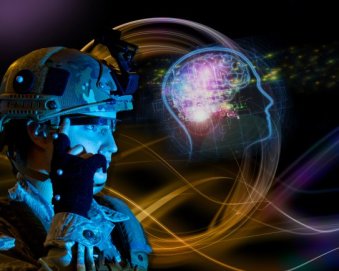Woo-woo neo-pseudoBuddhism. But it’s got “Neuro” in the title!
Tag Archives: science
10 Ways to Increase the Dopamine In Your Brain
Mad Scientists: Brainpower next frontier in Army’s arsenal | Article | The United States Army
“Cognitive dominance is critical to winning in a complex world, experts say.”
WASHINGTON (Army News Service, Nov. 10, 2015) — “Human performance will be as important, if not more important, than technology in 2030,” predicted a high-level Army intelligence expert.
The reason is that “we’ve seen an erosion in our technological advantage to overmatch adversaries,” a trend that will continue, said Thomas Greco, G-2 for the U.S. Army Training and Doctrine Command.
Greco and Dr. Kira Hutchinson, director, intelligence/engagement, TRADOC, G-2, spoke during a Nov. 9 media teleconference that summarized findings of the Mad Scientist 2015 conference’s “Human Dimension 2025 and Beyond: Building Cohesive Teams to Win in a Complex World,” held Oct. 27 – 28 on Fort Leavenworth, Kansas.
Mad Scientist is an annual event that brings together thousands of U.S. and international leading scientists, innovators and thinkers from industry and academia at the conference and through virtual attendance.
“It’s about asking disruptive questions,” Greco said of the goal of Mad Scientist, and it’s about “challenging the Army’s traditional-held beliefs and group think.”
Read more: Mad Scientists: Brainpower next frontier in Army’s arsenal | Article | The United States Army
#Neuroscience has proved that #porn is literally making #men’s #brains more childish. Seriously. | Blogs | LifeSite
 ‘Adult entertainment’ may be the ultimate misnomer.
‘Adult entertainment’ may be the ultimate misnomer.
[This is a great example of an article having little to so with neuroscience save the use of the word.]
Two hundred years ago in the U.K., if you said you were going to a “gentleman’s club,” it was understood you were going to a private upper-class establishment where you could relax, read, play parlor games, get a meal, and gossip with others of your class. Today, in the U.S., if you said you were going to a “gentleman’s club,” it is assumed you will be paying to see a striptease in a low-lit bar.
Is this really what should typify a “gentleman”?
Pornography is often classified, along with other sexually oriented businesses, as “adult” entertainment—something for “mature” audiences. If this meant that these kinds of entertainment are “not suitable for children” then few would protest.
The very thing in the brain that is the mark of adulthood and maturity is the thing that is eroded as we view more porn. It is as if the brain is reverting, becoming more childlike. “Adult” entertainment is actually making us more juvenile.
That said, it would be foolish to use this as an argument that pornography is suitable for adults. Heroin and methamphetamines are also “not suitable for children,” but this does not mean, ipso facto, that they are healthy for those over the age of 18.
Virtual Hair Cut (Amazing sound effect) – YouTube
Believe or not this is also a delightful example and explanation of how brains handle sounds.
Can You Get Smarter? – The New York Times

YOU can increase the size of your muscles by pumping iron and improve your stamina with aerobic training. Can you get smarter by exercising — or altering — your brain?
This is hardly an idle question considering that cognitive decline is a nearly universal feature of aging. Starting at age 55, our hippocampus, a brain region critical to memory,shrinks 1 to 2 percent every year, to say nothing of the fact that over 40 percent of Americans age 74 and older have Alzheimer’s disease. The number afflicted is expected to grow rapidly as the baby boom generation ages. Given these grim statistics, it’s no wonder that Americans are a captive market for anything, from supposed smart drugs and supplements to brain training, that promises to boost normal mental functioning or to stem its all-too-common decline… read more: Can You Get Smarter? – The New York Times
#Neuroscience of #Chicago #Cubs Fans – YouTube
C2ST Artist in Residence Aaron Freeman pretends to interview Stanford University Neurobiology professor Robert Sapolsky on the difference between the brains of Chicago Cubs fans and those of lesser beings. According to Sapolsky part of the difference may have to do with higher sustained levels of the neurotransmitter dopamine.
“YOU WON’T BELIEVE YOUR EYES!” – Smarter Every Day 142 – YouTube
Playing an instrument benefits your brain – not apparent at the #mva2015 awards #HaileeSteinfeld
When I interviewed #Oliver Sacks on #wbezlive #neuroscience
More than a decade ago legendary neuroscientist Oliver Sachs visited the radio studios of WBEZ Chicago Public Media to chat with then Metropolis host Aaron Freeman, now Artist in Residence of the Chicago Council on Science and Technology. Oddly during the interview Sacks suffered a migraine headache the sensation of which he described live on air.

